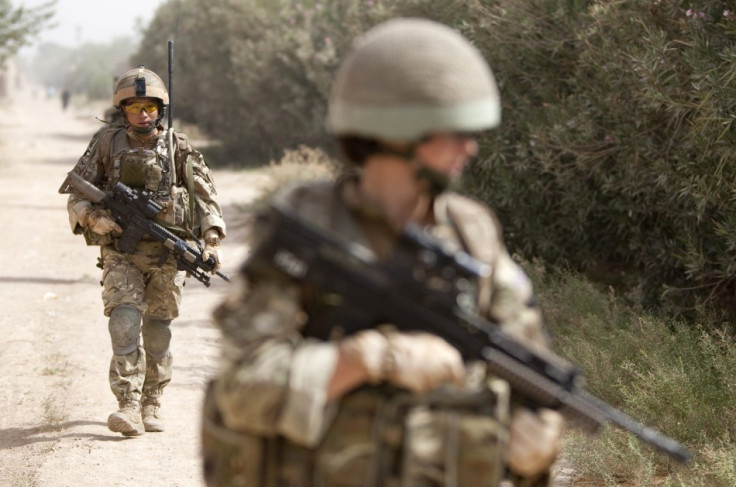One in Five US Soldiers Had Mental Illness Before Joining Army

Almost 1 in 5 new US Army recruits had mental illness before enlisting, new research has revealed.
The study, published in two papers in JAMA Psychiatry this week, has raised questions over the military's assessment and screening of recruits, as well as concerns over a lack of treatment.
In confidential surveys and interviews with 5,428 soldiers, over 8% said they had considered suicide and 1.1% had attempt to kill themselves prior to enlisting. The US army also had a high number of recruits with depression, panic disorder and ADHD (Attention Defecit Hyperactivity Disorder).
Most notably, it was found that over 8% of soldiers entered the US military with intermittent explosive disorder, a behavioural disorder characterised by extreme expressions of anger, often to the point of uncontrollable, disproportionate rage. It was the most common disorder in the army, with a pre-enlistment prevalence almost 6 times the civilian rate.
Another study examined the increased suicide rate among soldiers between 2004 and 2009. The research revealed that 1 million soldiers who had been deployed to Afghanistan or Iraq had an increased rate of suicide. However, the rate also rose in soliders who had never been deployed, the cause of which remains unexplained.
The results have prompted experts to question how mentally ill soldiers were selected in the recruitment process. Applicants are asked about their psychiatric histories and ordinarily, those with certain disorders or those with a previous history of suicide attempts are barred from service.
Ronald Kessler, a sociologist at Harvard University who co-led the study, told the LA Times: "The question becomes, 'How did these guys get in the Army?'"
Research began in 2009, led by the Army and the National Institutes of Mental Health, as a response to an increase in suicides. Traditionally, soldiers were psychologically healthier than the rest of society, due to good access to healthcare, high fitness standards and screening.
However, Kessler highlights the problem of aggression in army recruits. He said: "The kind of people who join the Army are not typical people. They have a lot more acting-out kind of mental disorders. They get into fights more. They're more aggressive."
The researchers found that pre-enlistment rates of depression, anxiety, bipolar disorder and substance abuse were on par with civilian rates. Rates of suicidal idealation, planning and attempts were lower than in the general population, yet still significant.
During service, however, rate of psychiatric disorders rose above civilians levels. One quarter of soldiers were diagnosed with anxiety disorders. The percentage of soldiers who had attempted suicide rose from 1.1% to 2.4%.
Dr. Thomas R. Insel, a director at the National Institute of Mental Health, told CNN: "These studies provide knowledge on suicide risk and potentially protective factors in a military population that can also help us better understand how to prevent suicide in the public at large."
Matthew Nock, a Harvard University psychologist who led the study on suicide, said more than 30% of suicide attempts that occurred after enlistment would have been prevented if the Army had excluded recruits with pre-existing mental health conditions.
Nock said he believed the Army should improve its screening of recruits, not to exclude them but to provide treatment to those who acknowledge a history of mental illness.
© Copyright IBTimes 2025. All rights reserved.






















